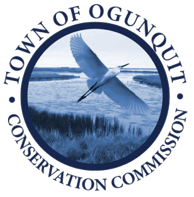 For years towns have been able to apply to the Maine Department of Environmental Protection to obtain a seaweed removal permit if needed. But now a York representative has proposed a bill that will allow towns to bypass this permitting process and decide for themselves when to remove ‘large’ amounts of seaweed. ‘Large’ is not defined.
For years towns have been able to apply to the Maine Department of Environmental Protection to obtain a seaweed removal permit if needed. But now a York representative has proposed a bill that will allow towns to bypass this permitting process and decide for themselves when to remove ‘large’ amounts of seaweed. ‘Large’ is not defined.
Bypassing state permitting may lead towns to unwitingly destabilize their beaches, kill the tiny sand animals that help decompose dead crabs and shellfish through over raking, and provide little food for endangered species.
If you live in a town with an ocean beach and love to walk and sit on the beach, then you are probably all too familiar with seaweed dried and fresh on your beach.
Dried seaweed can feel sharp and painful for some walking barefoot; not many want to walk through fresh seaweed anyway. It often smells, has tiny bugs flying around it, and can have mussel shells attached and is unsightly.
Moreover, seaweed heating up on the beach can allow disease causing bacteria to persist and even multiply in the seaweed mats as well as in the neighboring sand. Let’s face it – it can be a health risk to beach goers and even affect the water quality.
Yet seaweed is a necessary part of the beach environment. Seaweed captures sand that otherwise might be washed away, adding sand to the beach. It can fertilize beach grass and other plants growing along the high beach or at the bottom of dunes. Seaweed brings food for endangered species such as the piping plover and for larger birds that look for the mussels and crabs and other small animals that live attached or in the seaweed.
Decomposing seaweed also feeds the tiny creatures that live in the sand; those animals, so small you need a microscope to see them, are the necessary small creatures that help decomposing decaying seaweed and small sea animals.
Towns can still remove large amounts or unhealthful seaweed, but should continue to depend on the professionalism and experience of those trained to recognize these problems. Allowing towns to decide without permitting from the Maine DEP could well be a mistake that will lead to grave consequences for the town’s beach and their beach goers – less sand, erosion, and a beach barren of life.
